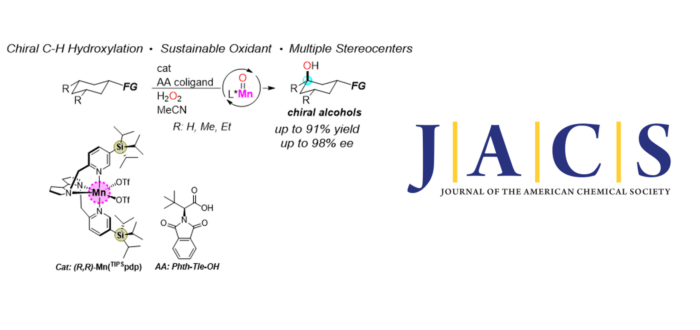This week the Societat Catalana de Química (SCQ) announced that Sílvia Osuna, ICREA professor at the Institut de Química Computacional i Catàlisi (IQCC) of the UdG, received the Emerging Scientific Talent 2023 award of Societat Catalana de Química, for her outstanding scientific career on the design of new enzymes of industrial interest using computational chemistry tools. The Emerging Scientific Talent Award for Young Investigators
- sec.iqcc@udg.edu
- +34 972 41 83 57
Month: September 2023
In this work, a team led by Dr. Marc Garcia-Borràs report a computationally driven approach to access enantiodivergent enzymatic carbene N–H insertions catalyzed by P411 enzymes. Computational modeling, carried out by PhD student Carla Calvó-Tusell, was employed to rationally guide engineering efforts to control the accessible conformations of a key lactone-carbene (LAC) intermediate in the
Dr. Eduard Masferrer has recently joined the Institute of Computational Chemistry and Catalysis (IQCC) as a new member. He obtained his PhD from Utrecht University in The Netherlands, under the supervision of Prof. Robertus J.M. Klein Gebbink. Throughout his doctoral studies, Dr. Masferrer focused on advancing the field of aromatic oxidation reactions by developing catalysts
The Institute of Computational Chemistry and Catalysis (IQCC) of the University of Girona (UdG) is a worldwide reference unit in computational chemistry and catalysis that aims at carrying out groundbreaking research on predictive chemistry for catalysis, with special focus on the processes occurring at the confined space for the coming years. One of the pillars
The development of novel strategies to introduce chirality at a molecular level is a longstanding pursuit within the organic chemistry community. The generation of chiral alcohols has an important role for the synthesis of many bioactive molecules, however the asymmetric construction of C-O in an enantioselective manner from C(sp3)-H bond rich and readily available starting





